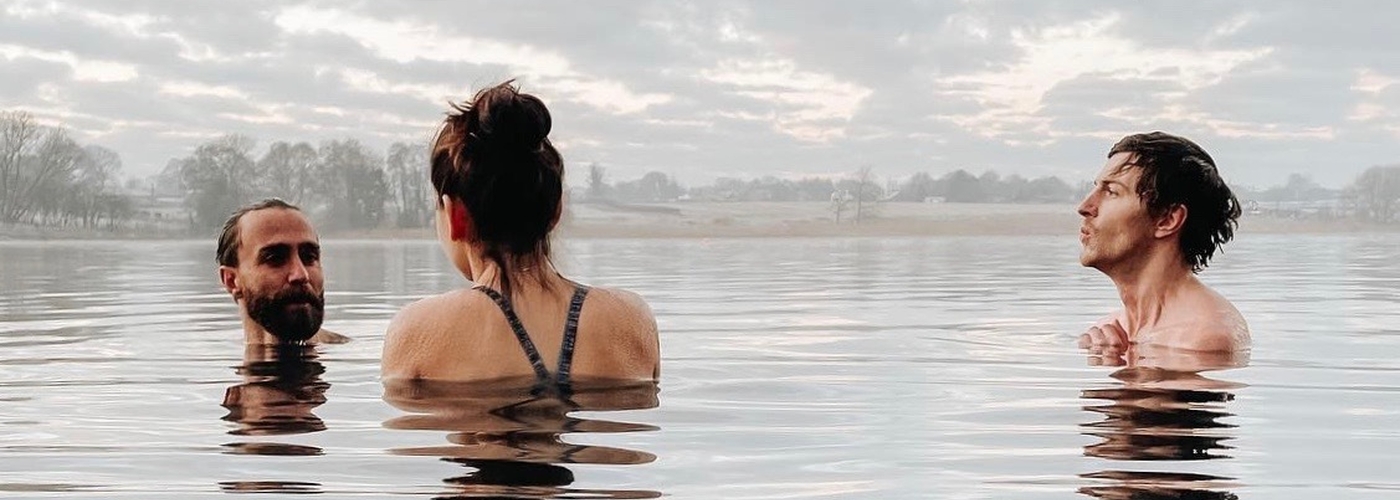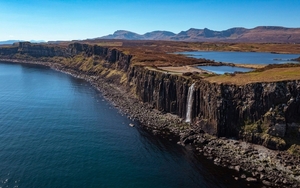Sarah Tierney takes a deep dive into the icy world of cold water immersion in Manchester
In January 2021 when I first started seeing Instagram posts of people walking calmly into windswept northern lakes and reservoirs in the midst of winter, my gut reaction was: no thanks.
The cold burns and aches, and the ache grows until it’s all I know about.
It was on the feed of a yoga teacher whose classes I’d been doing online. At first it was just him, then him and a few friends, then the next time I looked, there were 30 or 40 of them, neck-deep in the murky waters of Sale Water Park at sunrise, bobble hats on and big grins across on their faces.
Good for you, I thought, you bunch of maniacs. But I should know by now that when something makes me ask why (as in, why on earth would you do that?) there’s a good chance I’ll end up doing it myself to find out the answer.
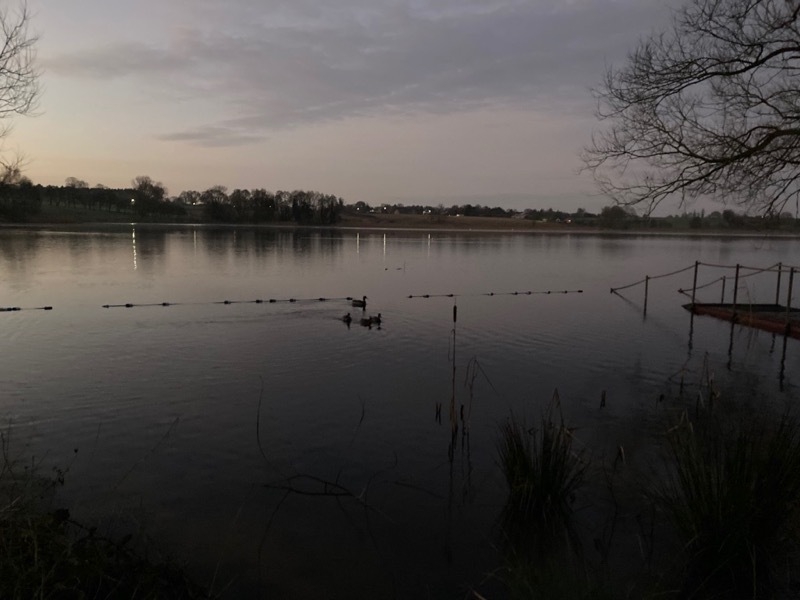
And so it was with breathwork and cold water immersion. Jump forward a year and I hear myself pitching it as an article idea to my editor. Then I find myself booking a place on a guided session at Pickmere Lake, and setting my alarm for the middle of the night to make sure I get there on time. I do all this without thinking too much about it. It’s not until I’m in the woods in my bikini at 6.30 on a February morning that I fully tune in to what I’m about to do. And then I panic.
I follow the other "dippers" down to the lake and along a jetty and I’m breathing so fast I can’t speak or think. I’m hit by an instinctive, cell-level, mind-flooding fear. Then my feet reach the water and it hurts. The cold burns and aches, and the ache grows until it’s all I know about.
David, the leader of the session, sees I’m terrified and holds out his hand. I can’t remember what he says but I know I walk into the cold water up to my waist and take some fast, stunned breaths before retreating with stinging feet to the shore.
I look back at the lake where the others are bobbing about calmly like snow monkeys in a hot spring. "Why would you do that?" has become "Why did I do that?" And I don’t know the answer but I know I want to do it again. The pain has faded and my skin feels taut and tingling like the surface of a glass of lemonade.
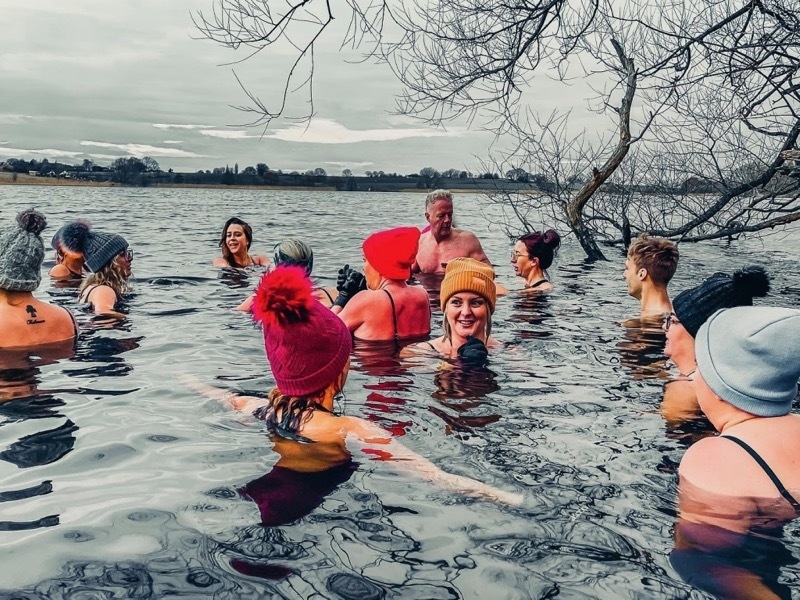
There's something in the water
In that initial shock when I gripped David’s hand and he told me I could breathe through it, my one coherent thought was: you don’t understand how much this hurts. You don’t know what this pain feels like.
I’m glad I couldn’t speak at the time because I later found out that physical pain is something he knows a lot about. David had an ingrowing rib cage and at the age of 12 had a metal bar implanted in his chest to correct it; an operation he describes as “excruciatingly painful.” Then in 2019, at the age of 26, he had it removed, enduring cracked ribs and months of severe bruising.
He’s alright now, thankfully. And in a sweet reversal of fortune, the boy with a caved-in chest ended up with a physique good enough to model for Calvin Klein. These days he combines modelling with running Influx - the brand that organises the cold water immersion Breakfast Session at The Farm Club. Founded by David, whose full name is David James Seed, and his girlfriend Naima Bossi, it’s a Manchester-based label that sells “cobes” - coat robes that make it easy to cover up and get warm after a cold dip.
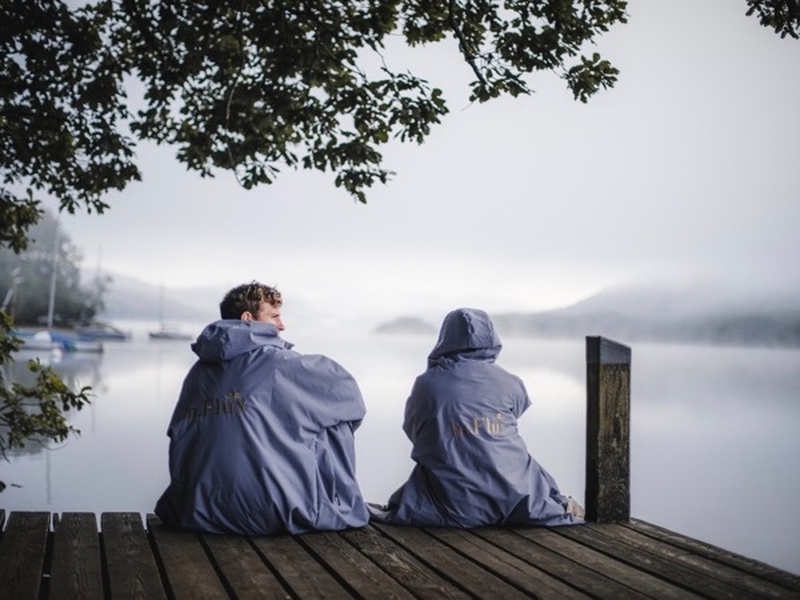
Cold water immersion and the breathwork that often goes with it is growing in popularity, and not just in Manchester where the loose community of people practising it is now in the hundreds. The list of those who swear by its benefits includes Joe Wicks, who has an ice bath in his back garden and Fearne Cotton, who takes a cold shower every day. Danish endurance athlete Wim Hof is its most famous practitioner. Known as the Ice Man, his superhuman feats include running a half marathon barefoot above the Arctic Circle, and climbing Kilimanjaro in shorts. His book The Wim Hof Method is a bestseller, along with James Nestor’s book Breath.
Back at The Farm Club’s cafe after the dip, I ask David what he gets out of the practice. For him, the appeal is the effect the cold has on your thought processes; the shock of being immersed in six-degree water shakes them up but also, somehow, quiets them down.
Says David, “You go into survival mode when you come into the water. You can’t think of what’s going on at work, or what happened when you were a kid. All that mental chatter disappears and you come into that present moment where there’s nothing else going on in the world but the water around your neck and just being here.
"By doing the practice consistently, we’re bringing ourselves into the present on a regular basis. As adults, we lose that ability.”
David believes it is transformative if done on a regular basis. He says, “I’ve seen people completely change, like 180. I’ve seen people come out of holes of depression, lose dramatic amounts of weight, come off sleep apnea machines.”
All from immersing themselves in cold water for a few minutes, a few times a week? It seems hard to believe. But I’m not going to dismiss it after one, not-very-successful attempt. So the next Saturday I go to The Farm Club again, this time for a community cold water session; a weekly gathering of 60 or so people which grew out of the Reservoir Doggs - the original Manchester group of dippers and wild swimmers that formed during lockdown.
The session starts with ten minutes of breathing exercises to warm the body and calm the mind before you take off your many layers of clothes and approach the water. Last week I’d been too busy taking it all in to focus on the breathing exercises. This time I want to do them properly, mainly because I know that if I don’t, I’ll panic again.
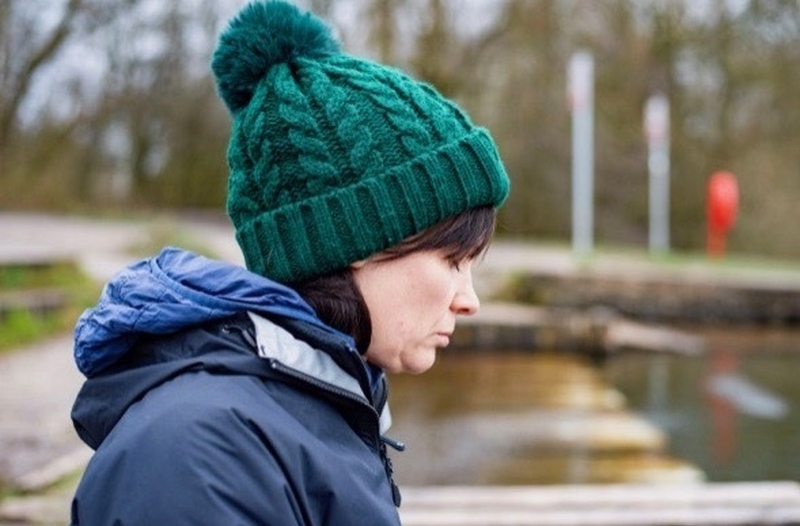
A rush of adrenalin
Breathwork deserves an article in its own right but to describe it briefly, it’s a way of deliberately reducing or increasing your adrenalin levels, depending on what type of breath pattern you’re following.
Sitting cross-legged in a field above the lake, we do Wim Hof-style breathing which increases adrenalin because you’re breathing deeper and faster than normal. You’re basically hyperventilating but on purpose. As such, it doesn’t feel great. You’re deliberately creating stress; it’s stressful. We alternate this deep breathing with breath holds, where you take a long breath out, then refrain from breathing in for 60 seconds. You don't feel the need to breathe in this time because you've got a lot of oxygen in your system from hyperventilation.
Unlike hyperventilation, the breath holds are very relaxing. The stillness in your head in those moments feels good - it’s a relief and a balm. A quietness we rarely experience in our busy, always switched-on lives.
I find that quiet place and try to stay in it as we go down to the lake. I’m not calm but I’m not panicking either as I walk along the jetty. The water is still a shock and it still hurts like hell but I’ve made a small, narrow space in my head that seems to separate me from the cold. I go in up to my waist, my shoulders. Then the fear starts to seep through. There are lots of people getting into the lake, and I’m moving further away from the jetty to make room. What if I can’t get past them to get back out? I need to get out, now.
I get out and within seconds, I’m fine. I’m the first back on shore again but I went fully in, and that’s progress. But progress towards what?
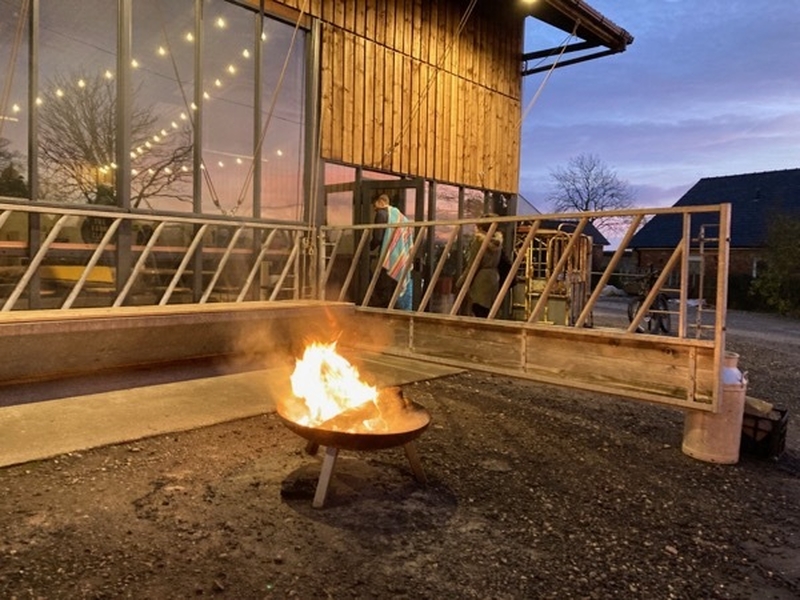
On neuroscience podcast, The Huberman Lab, Stanford professor of neurobiology and ophthalmology Dr. Andrew Huberman, explains in detail what is happening in your brain when you deliberately put yourself into a “heightened state of autonomic sympathetic arousal, aka stress”, through, for example, cold water immersion. I’m not going to try to summarise how the process works (listen to the podcast for that) but he sums up the end result simply when he says, “Daily short bouts of intense stress actually reversed the effects of chronic stress.”
Intense stress creates less stress? Like walking into a cold lake in winter, it’s counterintuitive. But I remember that slim space in my head - the one that stopped the cold from flooding me with fear, for a short time at least. Is this what we’re trying to cultivate here?
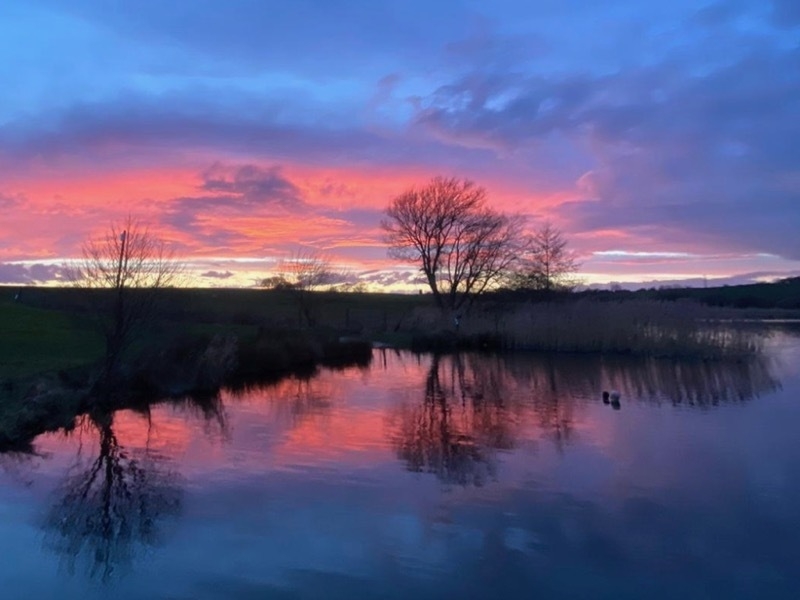
Why practise cold water immersion?
I ask other people why they do it and their reasons are as diverse as they are. The dippers range from 18-year-old boys to 60-year-old-women, from all over Greater Manchester and the North West. Some are there for the alertness and elevated mood you get after a dip. Others are attracted by the adrenaline-seeking, extreme sports side of it. Others like the sunrises and sunsets and being connected with the natural world. One guy had been booked on by his wife because he hadn’t been himself lately and as she put it, “He needed something”.
Others go into the water to work through something in their heads. Breathwork is gaining recognition as a form of trauma therapy and cold water immersion seems to work in a similar and complementary way.
On the Huberman Podcast, episode 54, Dr. Jack Feldman, professor of neurobiology at the University of California, explains how disrupting the breath disrupts the signals in the brain, weakening circuits that have become ingrained, for example in cases of depression. If you do it often enough, you can start to wear these circuits down.
So by practising breathwork and immersing ourselves in the water, we’re breaking down negative thought processes? It’s an intriguing idea. At The Farm Club session, I meet Darren Hodgkinson from Breath Immersion, a cold water and breathwork studio that will be opening in Manchester in May. We arrange to meet at Sale Water Park so he can tell me more about how the practice works, and he promises, get me fully into the water for more than just a few seconds.
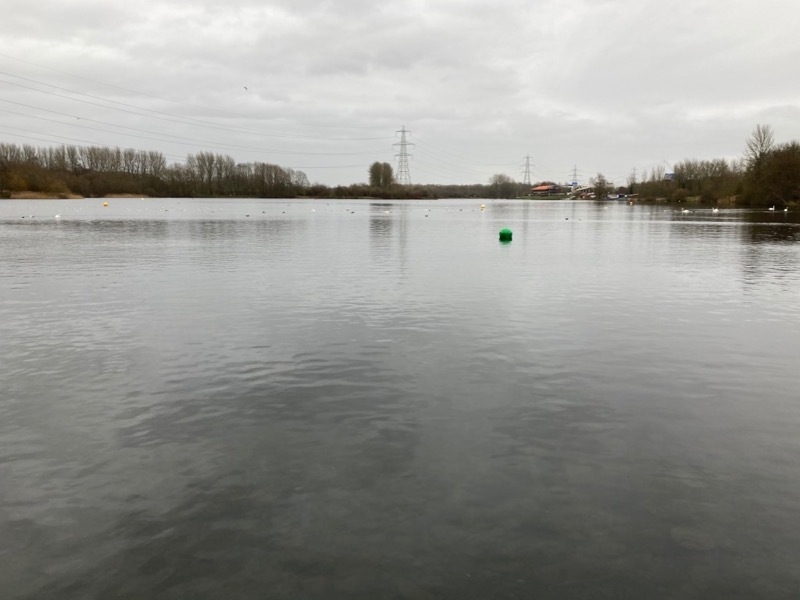
From police officer to cold water therapist
It’s a grey weekday morning in February when we meet. As we walk around the man-made lake, Darren tells me how he got into the practice after seeing a couple of people in the water here, when he was out on a lockdown walk. They invited him to join the small group that had formed to try it out.
He says, “I was really nervous the night before. My wife was saying, what are you doing? You’re 50-odd, you could have a heart attack.”
It’s a fair point and it’s why dippers tend to walk into the water slowly rather than jumping or diving. Darren describes putting his foot in that first time as “horrific” but he goes on to talk about the “euphoric rush” he felt when he got out.
Not everyone who's invited to go dipping in cold water says yes as readily as Darren did. (I know this because I asked pretty much everyone I know to try it with me, and they all gave me a flat-out no.) So what made Darren decide to do it that first time?
He goes back to his childhood to answer this question. Like David, and like me (I lost my father when I was six) Darren experienced trauma in his formative years. He was bullied as a teenager and got assaulted by three lads, one of whom then put his dad in a coma.
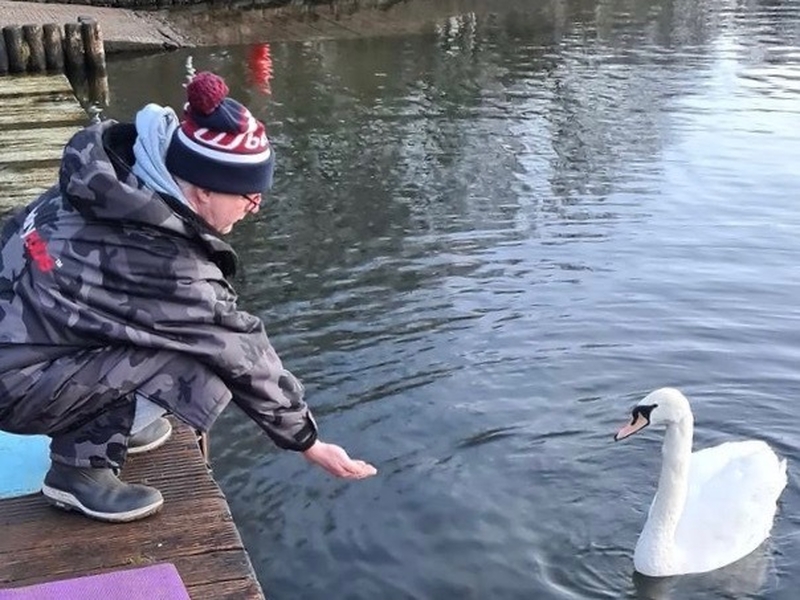
Years later, when he was 24, Darren decided he wanted to be a police officer. “Looking back, it was a way of gaining power,” he says, then adds, "It was the wrong thing to do.” He worked for Greater Manchester Police and was based in Wythenshawe where he lived at the time. As a police officer, he saw some awful things: suicides, murder victims, car crashes. If he didn’t already have post-traumatic stress disorder when he joined the force, he had it by the time he left.
Darren spent the next 20 years or so using different forms of therapy to try to deal with PTSD, depression, and an adult diagnosis of ADHD. He’s been practising cold water immersion and breathwork for over a year now and says it has changed his life: it's helped him come off medication for ADHD, cured his sleep apnea, and built his confidence back up.
He says, “I look back now and I think of where I was two years ago. I couldn’t stand up in front of people. My voice was really quiet. I couldn’t look people in the eye. I was self-conscious. I couldn’t take my top off. I’d be sucking my belly in. I just couldn’t do it. Now I’m like a kid again. I speak to everyone, I smile, I let on to everybody.”

He recently left his job as an insurance investigator to train as a breathwork facilitator and set up his studio. When he talks about how the two elements of the practice (breathwork and cold water) work for him, it reinforces the biological explanations given by the neuroscientists on The Huberman Lab.
Says Darren, “When I did the breathwork, all the blockages and all the shit, it started to break it up into bits. At each breath session, you would have a little release, you’d maybe cry, you’d yawn, or stretch. That’s it bubbling up.
“Then the way the cold water shock works is that we have a fight or flight button instilled in mankind. In the modern world, we’re conditioned to have our finger on the button all the time - because of things like COVID, cancer, petrol shortages.
"So we produce the chemicals to fight or flight - but we don’t actually physically do it. So the chemicals remain in your body. And the more you do that in your life, the more blocks you get, which create the illness, mentally and physically.
“The fight or flight button, we’ll always have it within us. But what the water and breathwork have done for me is - they've moved it away. I have to lean into it when I need it. All the stimulus from the outside world comes into that space, and I process it, it’s like a conveyor belt. I’ve got more order in this space.”
Finding calm in the cold
We reach the boat landing where we’ll be going into the water. Darren sets up some music and talks me through a breathwork session. At first, it feels a bit weird to be doing this in the middle of the day with dog walkers and school kids walking by, and the sound of the M60 in the background. But whether it’s age or I’m so chilled from the breath holds, I decide it doesn’t matter where I am or what other people are thinking.
We go into the water. I’m at a high level of alertness and stress but I don’t feel afraid or as though I’m losing control. Darren talks me through a sequence of movements that ends with me stretching out my arms and palms underwater; one of the coldest experiences yet.
When I do this, I notice how my core and ankles feel warm in comparison, and this is the moment that I finally start to accept the cold rather than battle against it.
Over the following month or so, I go into the water every week. I never stay in for long but I feel more in control of my mind and its fear response every time I do it. Then last Saturday, at The Farm Club, I find myself laughing and smiling in the water for the first time. The sun comes out and reflects off the lake and warms our skin and it feels completely different to my first time there.
What I'm most interested in though is the changes outside the water. There have been a few occasions lately when I’ve felt stressed but have been able to step back from it and say, well, it doesn’t really matter, does it? And not just say it but feel it too.
There have also been times when I haven’t been able to do this and I’ve become overwhelmed by everything life is firing at me; whether that's family stuff, work, or someone literally throwing punches at me in a boxing class. But those times just make me want to keep trying so that I can find that calm space more easily in more situations.
I feel that something is gradually shifting in the way I feel and react, so I’ll keep doing this cold water thing for now and just see where it leads. Maybe I’ll bump into you in a lake some time. I’ll be the one in a green bobble hat, a big grin across my face.
Follow Sarah on Instagram @bodyconfidential and @sarah.tierney5
Where to do cold water immersion and breath work in Greater Manchester
The Influx Breakfast Club runs every Saturday, Sunday and Monday at The Farm Club near Knutsford. To book, go to The Farm Club on the Instagram app and click 'Book Now' then 'Breathwork'. They also do a free weekend community session which you can book onto in the same way. Places for this are released a week in advance on Saturday or Sunday but fill up very fast.
Darren at Breath Immersion runs small group sessions, one-to-one sessions, and waterfall trips. The Breath Immersion studio will open in May.
BLOK Manchester does breathwork classes (no cold water involved) three times a week. Look for BLOKBreath on the timetable.
The Chilly Dippers runs one-to-one and small group (up to four people) sessions at Smithills, Bolton.
Breatheolution offers ice tank and breathwork sessions in New Mills, and outdoor cold water therapy in locations across the Peak District.
Urban Ice Man offers cold water therapy and breathwork sessions near Wigan.





